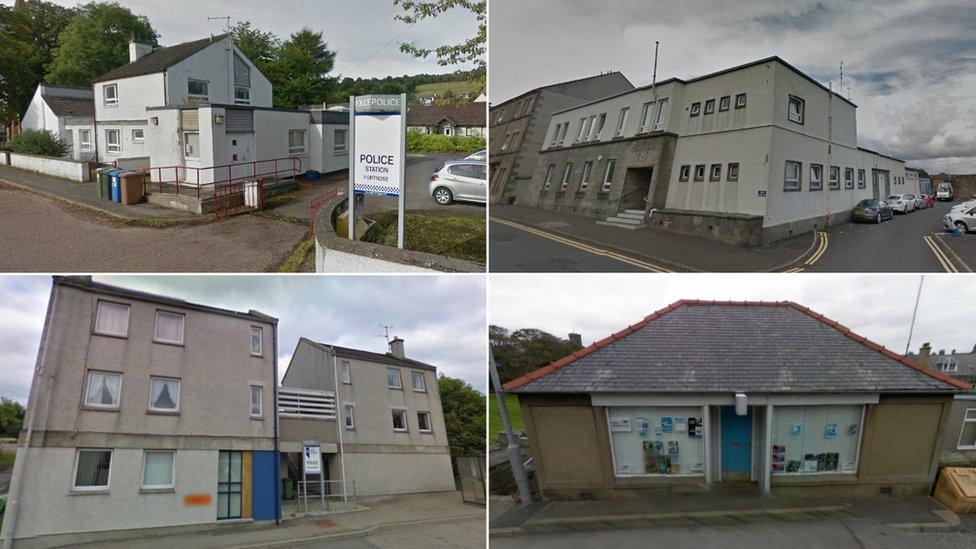140 police stations closed in Scotland over past decade
- Published
- comments
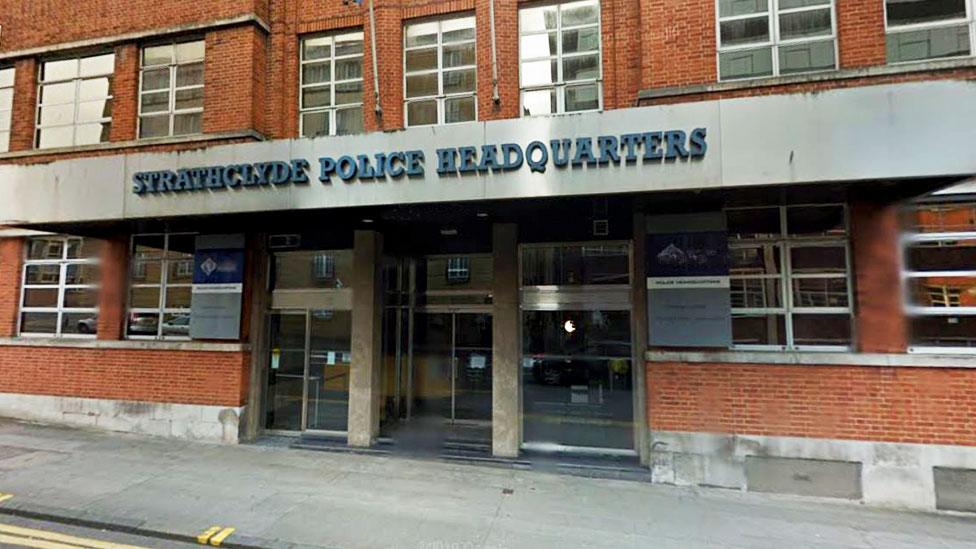
The former Strathclyde Police headquarters in Glasgow's Pitt Street was sold for £9.8m
The closure of 140 police stations and offices has happened in Scotland over the past decade, new figures reveal.
The Scottish Police Federation said it was having a "detrimental impact" on policing in remote and rural areas.
The research, by social affairs magazine 1919, found some staff were relocated to shared buildings including council headquarters. However, many building were closed and not replaced.
Police Scotland has made more than £28m in property sales since 2013.
Calum Steele, general secretary of the Scottish Police Federation (SPF) - which supports 1919 magazine - said many stations were in "a shocking state of repair".
He cited a lack of investment and "simple neglect" towards the police estate as an issue for remaining stations, with some ending up in disrepair.
The SPF, which represents for rank and file officers, previously posted images on social media showing mushrooms growing on the walls of accommodation for police officers in Dunoon.
Allow X content?
This article contains content provided by X. We ask for your permission before anything is loaded, as they may be using cookies and other technologies. You may want to read X’s cookie policy, external and privacy policy, external before accepting. To view this content choose ‘accept and continue’.
Finance Secretary Kate Forbes froze Police Scotland's capital funding in this year's budget.
It came despite calls from the force for additional funds of £242m over 10 years to help fix a backlog of problems.
Mr Steele told 1919 : "Years of underinvestment in the police estate have left many police stations in a shocking state of repair. Were it not for rats, many would have no inhabitants at all.
"Whilst we welcome new buildings and co-location with other agencies where they exist, the stark reality is that simple neglect has led to so many police stations being closed and lost forever."
Mr Steele also claimed that moving more officers to urban offices discouraged people in rural communities from contacting the police, as they had "little confidence of a meaningful response".
He added: "Officers and communities in remote and rural Scotland deserve much better."
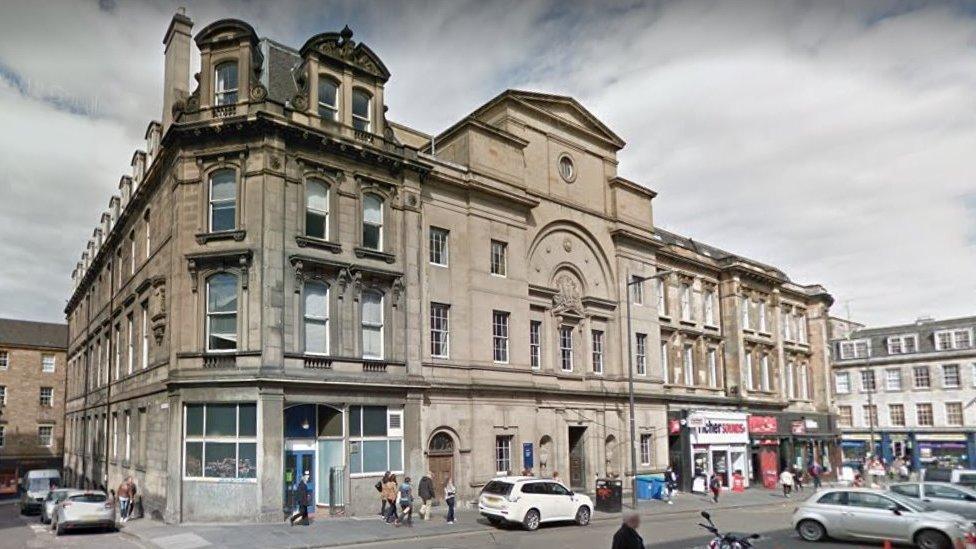
The former training school at Chambers Street in Edinburgh is now part of the University of Edinburgh
It emerged last year that Police Scotland had made £28.5m after selling off 96 of its old properties.
The former Strathclyde Police headquarters in Glasgow's Pitt Street raised £9.8m for the force while the former police training school in Chambers Street, Edinburgh, made £3.3m.
A further 26 buildings were listed as being under offer, on the market, being prepared to go up for sale or for proposed community transfer.
Since then, three other police stations have closed, with staff being relocated to council buildings in Aberdeen, Crieff and Alloa.
Leases for 15 other police stations have also been terminated or transferred.
'Not fit for purpose'
Police Scotland Deputy Chief Constable Will Kerr said: "Scotland's policing estate has been built up over the course of several decades and has suffered from a historic lack of investment under legacy arrangements.
"Some buildings are no longer in the right place, are not operationally fit for purpose and not designed in a way which allows us to work alongside key delivery partners.
"We carefully consider all options regarding the use of policing buildings, including co-location or relocation and consult with a range of stakeholders and the local community."
The Scottish government said recorded crime is at one of the lowest levels since 1974 and is down 41% compared to the data for 2006/07.
A spokesman for the Scottish government said: "The allocation of resources, including for the police estate, is for the Scottish Police Authority and the chief constable to determine.
"However, the police capital budget has more than doubled since 2017/18, supporting continued investment in the police estate.
"Police Scotland has prioritised the progress of a new and ambitious estates strategy which will lead to improvements in the operating environment for all officers and staff in line with the objective to proactively look after their wellbeing."
- Published28 February 2022
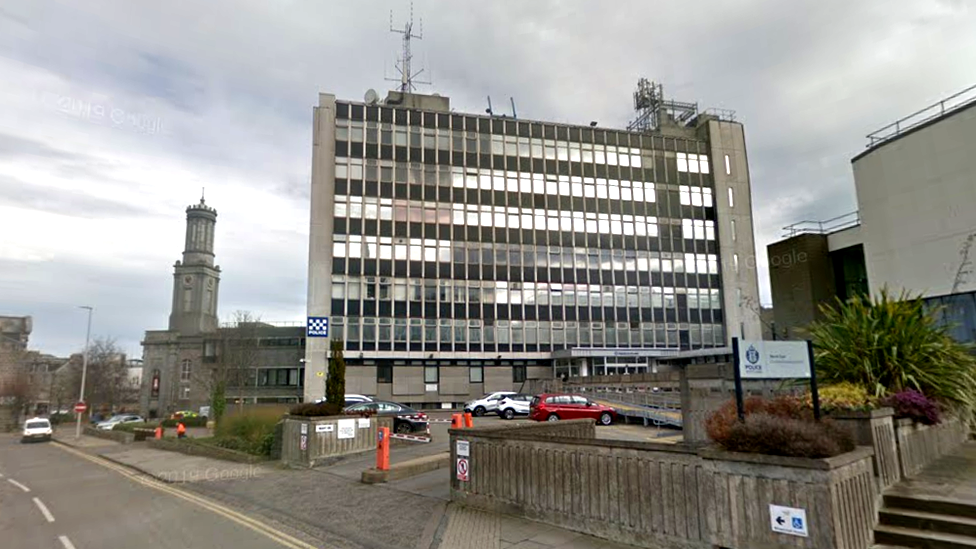
- Published12 July 2021
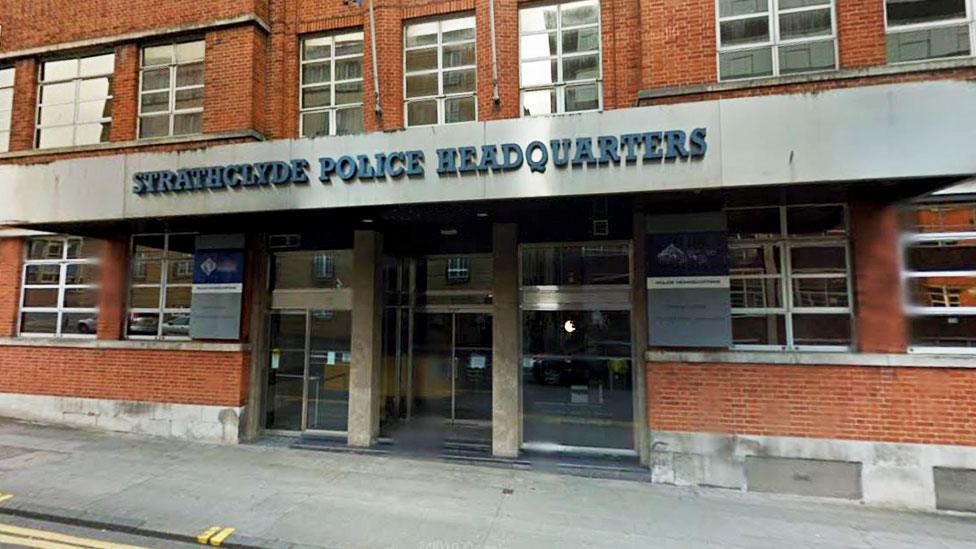
- Published26 September 2017
